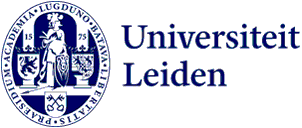
‘Transdisciplinary and interdisciplinary collaborations lead to better scholarship and solutions’
How can you persuade researchers who are used to conducting research within clearly defined disciplines to adopt an interdisciplinary approach? Newly appointed distinguished professor Arnold Tukker explained.
‘Ultimately, transdisciplinary and interdisciplinary collaborations lead to better scholarship and solutions’, Tukker said. As an example, he cites a onderzoeksproject he is leading on circular electronics. Environmental scientists, tech experts, designers, waste specialists and business experts are working together to reduce the mountain of electronic waste. Some know how to design electronics for durability, while others know how to disassemble products easily for recycling or calculate their environmental impact and whether they can be profitable. This is how experts from science and practice develop sustainable and innovative products in electronics.
Distinguished Professor
Recently, Tukker was appointed Distinguished Professor of Sustainable Development alongside his role as Professor of Industrial Ecology. In his new position, his focus will be on the strategic theme of sustainability. As such, he will promote interdisciplinary and transdisciplinary collaboration. Tukker was surprised to be asked to be a distinguished professor, given his relatively short career in academia of only about ten years. Prior to his current position, he spent 20 years at TNO, where he continues to work one day a week. His experience at TNO, where it is all about teamwork, is helping him drive change at the university. He sees a lot of individual work being done here and wants to motivate people to look beyond their own specialisation.
Serious social problems
‘Universities have a longstanding tradition of working within clearly defined disciplines with a focus on scientific excellence.’ According to Tukker, taking steps to address today’s complex social problems really requires interdisciplinary research programmes.
There are already such programmes at Leiden University, such as Liveable Planet. Tukker is attempting to expand that network even further by starting conversations with many people. In Liveable Planet, scholars from four faculties are working together to find solutions to create a more sustainable world. Tukker hopes to convince the law faculty, humanities and medicine to join as well, and he already sees people getting involved.
For example, medical students spend six months working with students from other faculties in an interdisciplinary thesis lab to explore how to halve the amount of waste generated by surgery. As distinguished professor, Tukker is committed to developing these kinds of innovative teaching methods. He believes that exposing students to a variety of disciplines is crucial in helping them understand the practical application of this knowledge. Through exposure, students can learn to ask insightful questions and interact effectively with others.
Money is essential
Tukker emphasised that creating interdisciplinary research programmes and thesis labs and sparking scholars’ curiosity at meetings are not enough to bring different disciplines together. Money is also essential. ‘This is where my TNO perspective comes in handy again, because I immediately start thinking about how to bring in money. Money for projects comes mainly from the Dutch Research Council (NWO) and the European Union.’ Those funders know that working in an interdisciplinary and transdisciplinary way across many disciplines produces the best scholarship and social solutions in many fields. But they prefer to see teams with members from different universities. That is why Tukker is pleased with the Leiden-Delft-Erasmus Universities strategic alliance, which has resulted in many collaborations. One is the aforementioned example of circular electronics.
Institutes abroad
‘Leiden University is also one of the best positioned to collaborate with local partners on sustainability issues, particularly in the global south. We have a few institutes that have their feet firmly planted abroad.’ For example, our university has institutes in Morocco, Egypt, Turkey and Indonesia. They have a wealth of knowledge about those countries and their regions, and they have extensive networks. Tukker wants to explore opportunities to work more closely with local partners through these institutes.
Knowing our role
Several times in the conversation, the distinguished professor pointed out that university researchers need to be realistic about the role a university can play in major social transformations, such as the field of sustainability. ‘A university has its own role in all this, and it is different from that of politicians who can change rules, consultants who rely on short-term research to recommend solutions or activists who want to signal that boundaries have already been crossed. Our role is to contribute sound knowledge about this kind of transformation using transdisciplinary and interdisciplinary research, among other things.’
Text: Dagmar Aarts
